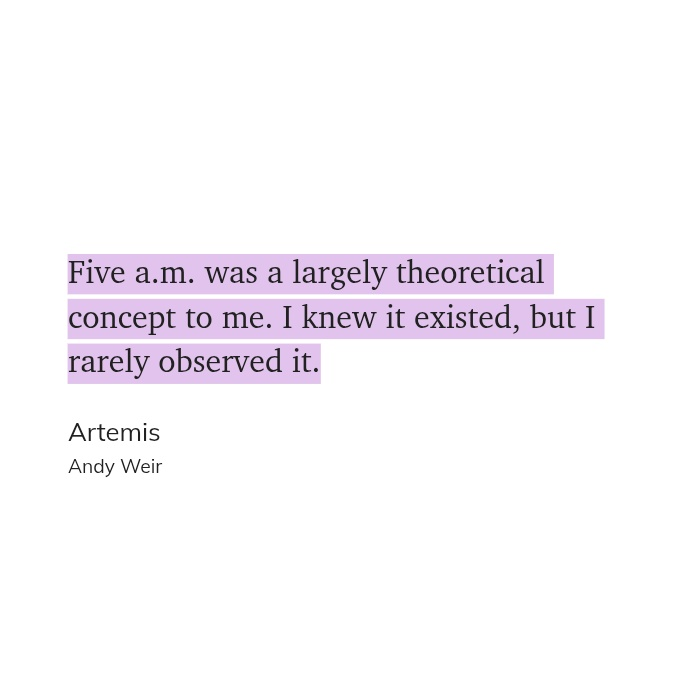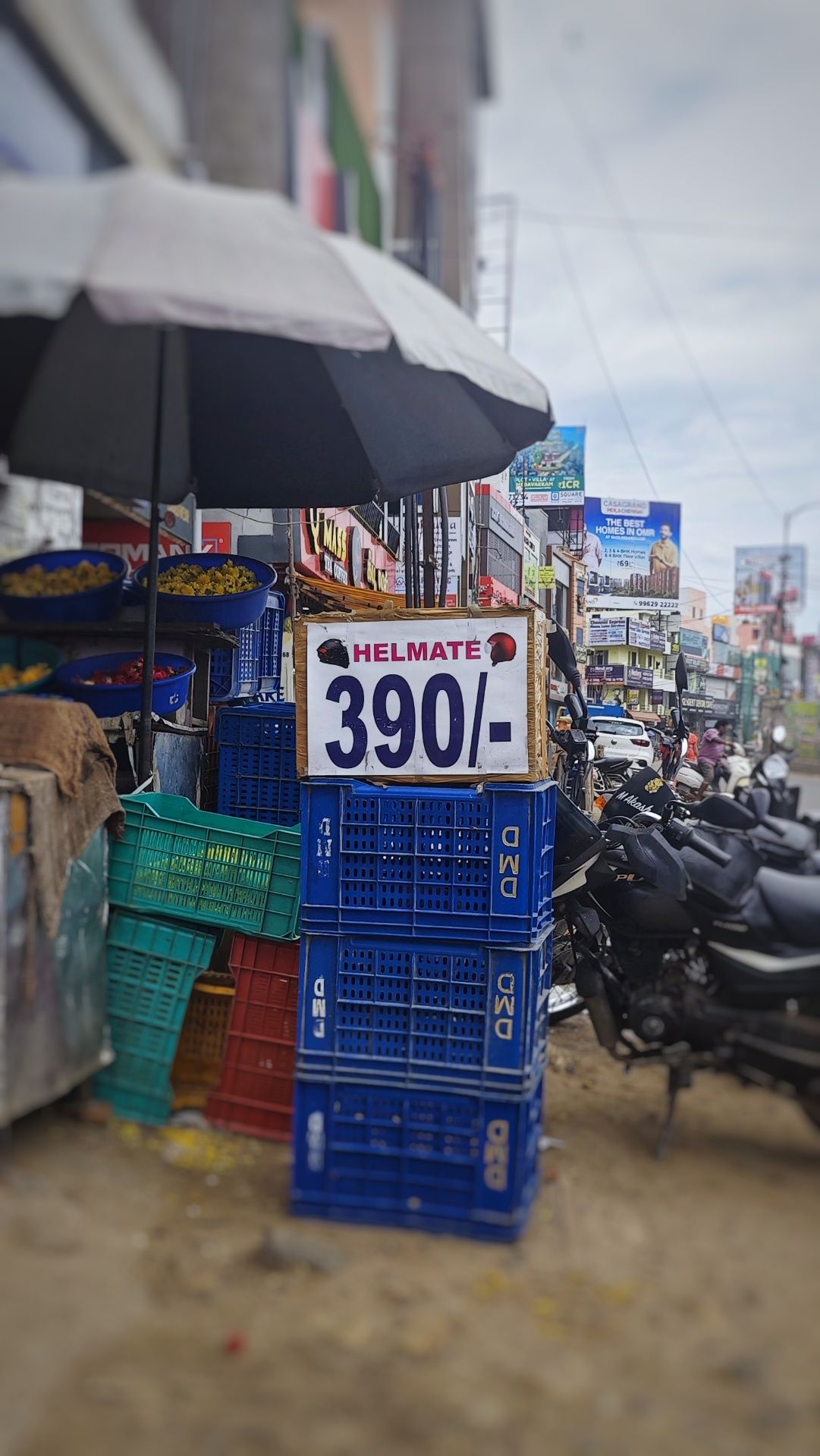
My navigator got fed up with traffic and decided to drive virtually.

My navigator got fed up with traffic and decided to drive virtually.

But 1 a.m. is a very known friend of mine 😂
I closed my laptop, walked a dozen steps, and plopped myself on the bed, when the words “I'm a big, big girl in a small, small world” appeared in my head, complete with a piano soundtrack. I didn’t know the artist, but a quick search led me to the song (earworm::Big Big World by Emilia) on YouTube. What amazes me is that I remembered the exact tune, the lyrics—everything was perfect in my memory.
A twinge of curiosity tugged at the edges of my thoughts. When had I last heard this song? I was confident I hadn’t heard it in the last decade—yet Last.fm told me otherwise: July 3, 2023. Hmm… Months had passed. What caused this song to resurface now, of all the countless tracks I’ve heard since then? And why now? I tried retracing my path through my thoughts. The thread vanished somewhere in the labyrinth of memory, a Theseus without Ariadne to guide me.
An hour later, I still didn’t know why the song sprang to life. I smiled, letting it be what it was: a fleeting, playful proof that thought and memory are never entirely ours to command. Maybe an errant misfiring synapse. Yet a reminder too, of some strange delights hidden in the quiet flicker of memory.
Superman must reconcile his alien Kryptonian heritage with his human upbringing as reporter Clark Kent. As the embodiment of truth, justice and the human way he soon finds himself in a world that views these as old-fashioned.

I think this movie was about Superman teaching us how to be a better human.
I liked the way they assumed that everyone was familiar with the DC canon, though I had to pause every few scenes to explain the lore and easter eggs to Max.
I hope this fares as a better reboot to the DCU than the DCEU one.
Last Saturday night, Max and I were watching a movie. It was already a bit past 10:45 when we started the movie. We were shifting between watching on TV or the laptop. We snuggled up on his bed with pillows piled up, snugly ensconced in blankets and began watching.
As the movie played on, we talked about scenes, characters, and dialogues. I pointed out the lore and he asked questions or asked to rewind to watch a missed scene or two.
About midway through the movie, I noticed his breathing pattern had changed — deepened. He had fallen asleep. I called out his name to verify that he was fast asleep. I slowly extricated myself from the intertwined blankets and proceeded to arrange the bedding around him when he woke up.
He wanted to continue the movie which I refused as he was sleepy and groggy. I told him we could watch the rest of the movie later. As I was tucking him in, he said, "Sorry pa" and "Good night," and fell asleep.
As I returned to my bed, his words were still on my mind, 'Sorry pa'. And it took a long time for me to fall asleep as I kept on thinking about it.
Was he sad because he fell asleep or was he sorry that we couldn't have the father-son bonding time?
Countless other thoughts kept circulating in my mind. I ran through all of our interactions throughout the day — words of praise (He had yet again got 97% in his music theory), words of frustration (at each other), words of advice, words about word origins (we had a discussion on why science usually uses precise terminologies to mean something) — and words unsaid.
The next day at church, we're sitting together and I asked him why he said sorry the previous night. He was embarrassed and said it was something he doesn't remember saying. As he turned away after complaining about his too-tight shirt, I remembered a poem by Wordsworth about fathers and sons: "O dearest, dearest boy! my heart / For better lore would seldom yearn, / Could I but teach the hundredth part / Of what from thee I learn."
After getting reincarnated as a dungeon, Theodor thought he’d finally get some rest and relaxation. That changed when a bumbling old hero stumbled into him and died, making Theodor the target of adventurers everywhere.⭐⭐⭐⭐
Masquerading as a house in the small town of Rosewind, Theo must now do whatever it takes to remain unnoticed… even if it means creating an avatar to interact with people or go on a mission set by the annoying Earl Rosewind!

I picked this up solely because of the cover. And it was a good choice. It was funny and an interesting take in the litrpg genre.
Might recommend this to Max.

Hell, mate! If you're not wearing a helmet… and there are cops nearby.
Hell, mate! If you're wearing a helmet under a Virgo sky at noon in Chennai…
A couple of days back, I was reading a story where a high school teacher asks her students to write an essay on the opening line of Moby-Dick: 'Call me Ishmael'. Not on Melville's style, not on the voyage or the whale, but on the name itself. Why Ishmael? Why not Bob, or John, or any of the thousands of other names that could have stood in that place?
The next day, I remembered the phrase 'stranger in a strange land', and it pulled me straight into Heinlein's novel of the same name, with its protagonist Valentine Michael Smith. Smith, the plainest of surnames, is a mask of anonymity attached to a figure who was anything but ordinary.
Together, the two encounters left me turning over the question of how much weight a name can carry. A name is never neutral. Ishmael suggests exile, wandering, survival. Smith is just Smith, which is almost the point. Names can be riddles, or half-hidden prophecies, or sometimes just a joke slipped in by the author when you're not looking. Before we know anything of a character's deeds, their name already speaks.
And then I caught myself wondering: what is my own favourite fictional name? I remember listening to Snow Crash during my commutes, grinning every time the narrator announced 'Hiro Protagonist'. The name was so audacious, so perfectly ridiculous, that it made the Chennai traffic around me feel a little less grim. By contrast, when I first encountered Severian in The Book of the New Sun, his name struck me like something unearthed—ancient, weighty, stark. I was reading it whilst my mom lay in the hospital, her sister newly gone, though she never knew. In that silence, Severian's name became more than fiction; it felt like an invocation, heavy with memory and meaning.
Perhaps names are the oldest form of worldbuilding—and the first spell an author casts over us.
Five years post-Jurassic World: Dominion (2022), an expedition braves isolated equatorial regions to extract DNA from three massive prehistoric creatures for a groundbreaking medical breakthrough.

It works as a one-off film in the franchise. D-Rex was a disappointment. The easter eggs were a good touch.
When Max and I were discussing this movie, I asked if there would be a sequel. He said maybe the dinosaurs adapt to colder climes and start migrating all over the world and that could be the premise. 😮